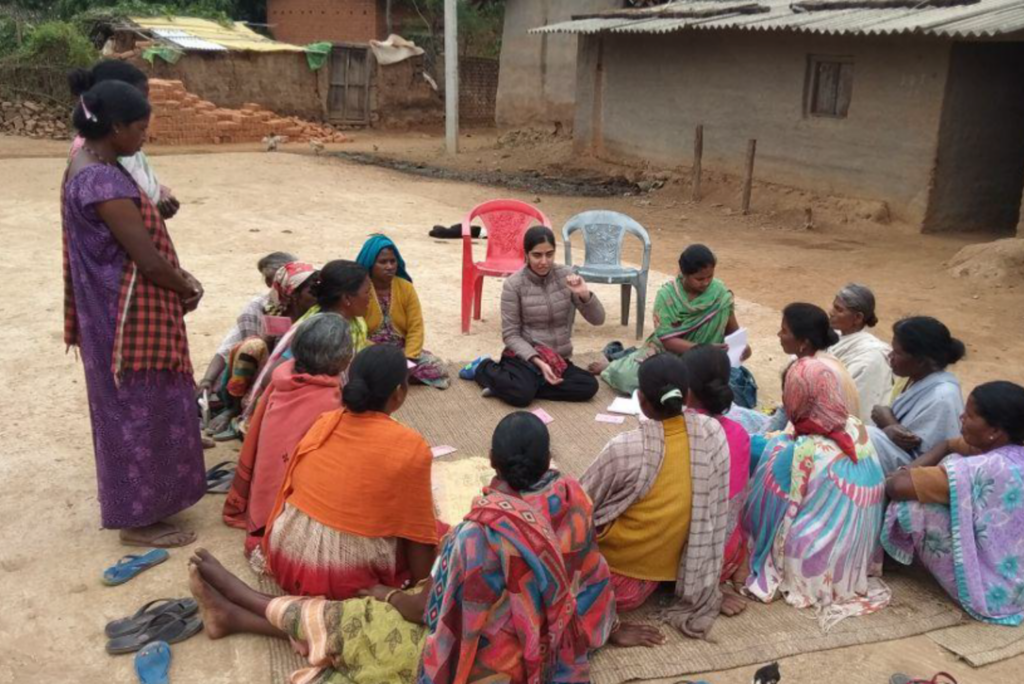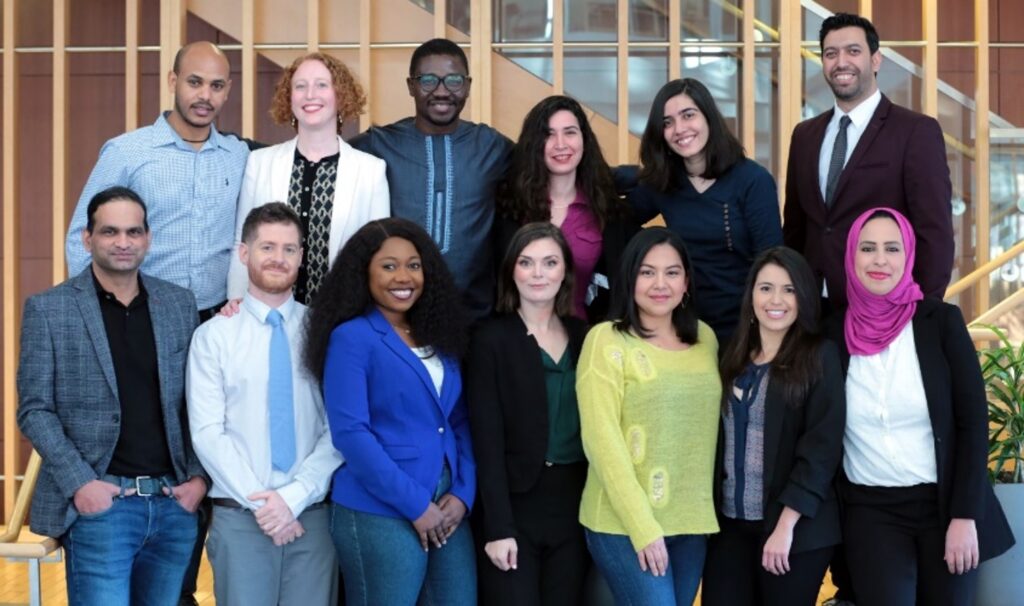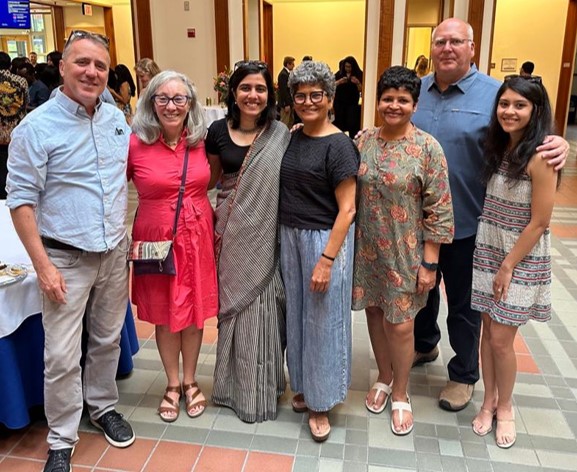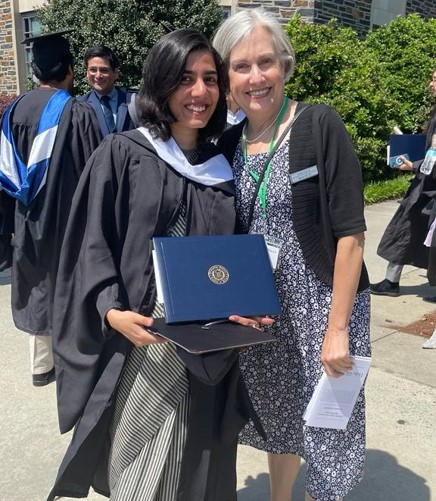Sakina Dhorajiwala, Class 20 (2021-2023)
Twenty Blogs for 20 Years
Sakina Dhorajiwala is a member of the most recent graduating class of Duke’s Master of International Development Policy (MIDP) program. Prior to her Rotary Peace Fellowship, she worked for seven years as an action researcher for Liberation Technology (“LibTech India”), where she worked on social safety net frameworks in several parts of rural India. She is also the co-founder of WeSpeakOut, group of Muslim women who have come together to end Female Genital Mutilation (FGM) in their community. Sakina has been admitted to the University of California, Berkeley’s PhD in Political Science program and will begin studies there in Fall 2023.
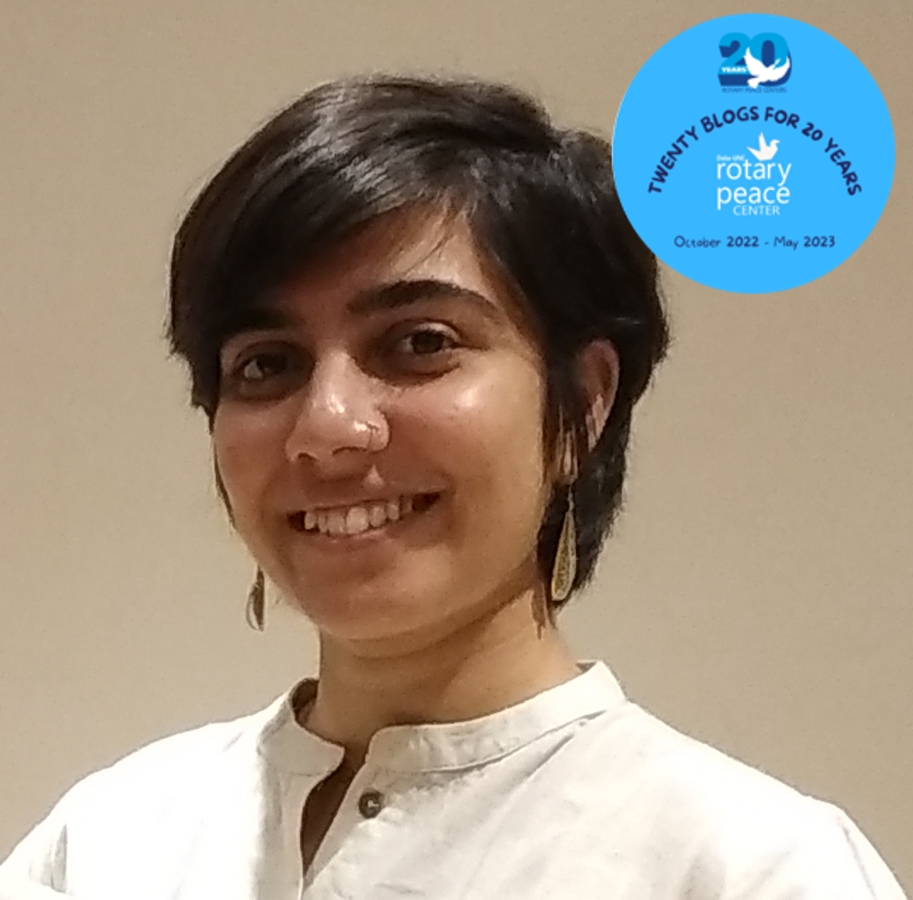 I write this blog on my last day in Durham before I transition to a PhD at the University of California, Berkeley. If there was one word that I would have to describe my time as a Rotary Peace Fellow, it would be growth. As I look back at my two years as a Peace Fellow studying at Duke, I feel I have grown not only intellectually but also emotionally and culturally.
I write this blog on my last day in Durham before I transition to a PhD at the University of California, Berkeley. If there was one word that I would have to describe my time as a Rotary Peace Fellow, it would be growth. As I look back at my two years as a Peace Fellow studying at Duke, I feel I have grown not only intellectually but also emotionally and culturally.
I decided to join the fellowship after working for about seven years on social safety nets in rural India with LibTech India and a teacher in the Teach for India program.
At that juncture, the Rotary Peace Fellowship felt like the right moment in my life to reflect on the work I have been doing. MIDP felt like the appropriate program to get involved in international development work and to learn and exchange ideas with a diverse set of individuals who have rich experiences from their respective contexts. Over the course of the program, the academic environment inspired me to get involved in research. My time as a Peace Fellow shaped me to conduct policy relevant research motivated by problems of the people whose rights these policies are concerned with.
I took classes on quantitative and quantitative research methods. In addition to those offered by the Peace Center and the Sanford School of Public Policy, I attended classes in several departments – Economics, Political Science and Computer Science. During my Applied Field Experience (AFE), I worked with Dr. Kate Vyborny in Duke’s DevLab. While most of the fellows pursue professional careers in peacebuilding, I decided to enter the world of academia. My master’s project was a policy question exploring the impact of payment failures on employment.
My fellowship journey began while COVID-19 was still wreaking havoc in many parts of the world. And yet, our cohort managed to arrive in Durham/Chapel Hill to begin classes in-person, albeit with a lot of restrictions. These challenges, of living in times of COVID, being international students (most of who were away from family), assimilating to the culture and pace of life in the United States, brought us together. We learned from the engaging coursework at Duke/UNC but also so much from each other’s diverse experiences. The relationships I built here will stand me in good stead in my journey ahead too.
I would be remiss if I did not mention the wonderful support of the Duke-UNC Rotary Peace Center’s staff, including Susan Carroll, Dominque Dery, and in my second year, Thomas Lasater.
With so much uncertainty about travel, visas, accommodation, university norms and class schedules – one thing was certain – the support we had from the Center. This includes not only the staff and faculty, but also our host counsellors and host area coordinators. My lovely host families, Janene and Peter Tompkins as well as Vandana Dake and John Warasila, have been there for me not only during the transition time but throughout the two years. They included me as a part of their family, whether it was for Thanksgiving or Diwali. There were several occasions when I struggled with issues, both personal and professional, and they were available. When my parents were not able to visit from India during the graduation, they were there cheering on, taking pictures, and even sending them to my parents in real-time.
Most of us fellows come from countries where we have faced struggles, seen or/and experienced conflict and worked in challenging contexts. And yet, when we begin student life, we are like any other students – stressed about assignments, submissions, and how to gain the most from the time at school. Often, when we reflect on our academic experiences, we tend to think of life in and around classes, coursework and coursemates. While that is critical, what makes the Rotary Fellowship experience especially valuable is all the added support and love we receive. That is what creates an enabling environment to learn and grow. As soon as you get admitted to the peace fellowship, you (and even your family) are inducted into a larger Rotary family – of staff, faculty associates, host counsellors, host area coordinators, former Peace fellows and Rotarians.
It was an honour to be in Class 20 of the Duke-UNC Peace Center. My time as a Peace Fellow has made me a stronger person, a better learner, and has given me the freedom to pivot into a new career. I write this note with heartfelt gratitude for those who made this journey possible, memorable, and successful. As I begin another exciting journey, I hope that I can pay the grace and kindness forward.
